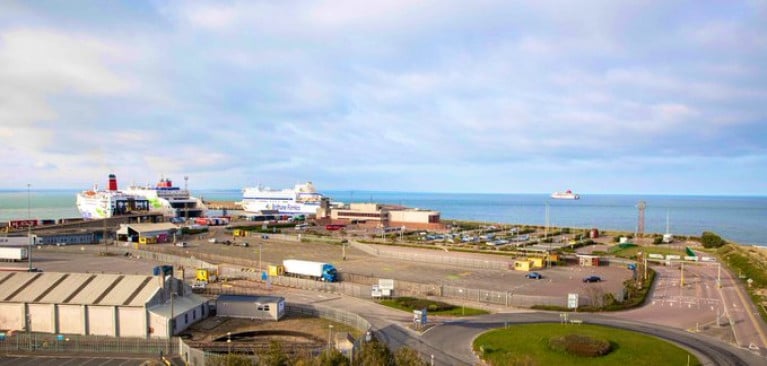Displaying items by tag: Wexford's 'Europort'
Rosslare Europort Quarantine Measures Begin at Ferryport
At the ferryport of Rosslare Europort and tucked away at the rear of the terminal building are two large green tents, flanked by several defence forces SUVs, reports New Ross Standard.
The newly erected 'holding area' is evidence of the new quarantine system which came into play at all entrance points to Ireland on Friday - including the Wexford port.
Under the new rules, anyone arriving into Ireland from a list of 33 'high-risk' countries will be legally required to undertake a mandatory two-week quarantine at one of four Dublin hotels costing a minimum of €1,875. While it was reported that the old Hotel Rosslare had been looked at as a possible quarantine facility, this has not come to pass and anyone arriving at Rosslare who is required to quarantine will be brought to the capital.
Although Rosslare is unlikely to see too many people who have passed through the 33 countries, most of which are in South America and Africa, new rules also state that passengers arriving into the country without a negative PCR test taken a maximum of 72 hours before arrival, will be forced to wait in mandatory quarantine until they return a negative test.
This means that any passengers arriving in Rosslare, excluding truck drivers and crew, from France, Spain or the UK will be legally required to present a negative Covid test. If they don't, they'll be brought to the 'holding area' tents at the rear of the terminal building, where they will be tested before the defence forces bus them out to a mandatory quarantine facility in Dublin where they will pay at least €150 per day until a clear test is returned.
Further reading on the story here.






























































